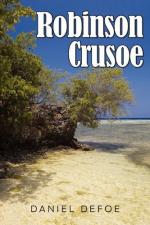|
This section contains 7,286 words (approx. 25 pages at 300 words per page) |

|
SOURCE: "Robinson Crusoe, Individualism and the Novel," in The Rise of the Novel: Studies in Defoe, Richardson and Fielding, University of California Press, 1962, pp. 60–92.
In the following excerpt, first published in 1957 and reprinted in 1962, Watt discusses the influences of capitalism and Protestantism on the rise of the individual and explores how Robinson Crusoe embodies economic individualism in his quest to better himself through seeking profit.
The novel's serious concern with the daily lives of ordinary people seems to depend upon two important general conditions: the society must value every individual highly enough to consider him the proper subject of its serious literature; and there must be enough variety of belief and action among ordinary people for a detailed account of them to be of interest to other ordinary people, the readers of novels. It is probable that neither of these conditions for the existence of the novel obtained...
|
This section contains 7,286 words (approx. 25 pages at 300 words per page) |

|


